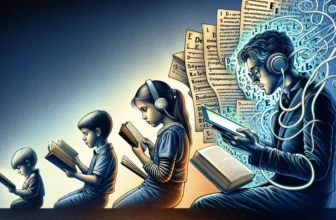
Innovations Shaping the World in 2025 and Beyond
Technology has always been the heartbeat of progress, driving how we live, work, and connect. In 2025, we find ourselves in a world where innovation evolves faster than ever, blurring the lines between science fiction and everyday life. From artificial intelligence to sustainable tech solutions, the digital landscape is transforming industries and redefining human potential. The future is not just about smarter machines—it’s about creating a more intelligent, sustainable, and interconnected planet.
1. Artificial Intelligence: Beyond Automation
Artificial intelligence (AI) is no longer a futuristic concept—it’s embedded in everything from healthcare to education. In 2025, AI has evolved beyond simple automation to become a powerful collaborator in decision-making and creativity.

Businesses are using AI-powered tools to analyze data, predict consumer trends, and streamline operations. In healthcare, AI assists doctors in diagnosing diseases earlier and more accurately than ever before. Even creative industries—once thought immune to automation—are embracing AI to enhance art, music, and design.
Yet, as AI grows smarter, ethics take center stage. Conversations around responsible AI—fairness, transparency, and privacy—are shaping how we integrate these systems into our daily lives. The challenge now isn’t just to build intelligent machines, but to ensure they work for the greater good.
2. The Expansion of 5G and the Dawn of 6G
Connectivity has become the foundation of modern living, and 5G technology has already transformed how we communicate and consume information. With its lightning-fast speeds and ultra-low latency, 5G supports everything from smart cities to autonomous vehicles.
Now, researchers are already working on 6G technology, expected to roll out later this decade. It promises speeds up to 100 times faster than 5G and will enable breakthroughs in holographic communication, AI-powered networks, and real-time digital twins—virtual replicas of physical systems that can be analyzed and optimized instantly.
The age of hyper-connectivity is upon us, where information will flow seamlessly between humans, machines, and environments.
3. Green Technology and Sustainable Innovation
As climate change accelerates, technology is stepping up as one of the planet’s most powerful allies. The global movement toward sustainable tech focuses on reducing carbon footprints, conserving energy, and promoting eco-friendly production.
Renewable energy solutions—like advanced solar panels, offshore wind farms, and next-generation batteries—are reshaping the energy sector. Smart grids use AI to manage electricity distribution efficiently, while eco-tech startups are finding new ways to recycle electronic waste and design biodegradable materials.
Even in the world of gadgets, manufacturers are adopting greener practices—developing repairable smartphones, recyclable components, and energy-efficient chips. The future of technology isn’t just innovative—it’s sustainable by design.
4. The Rise of Mixed Reality (MR) and Immersive Worlds
Virtual reality (VR) and augmented reality (AR) have matured into essential tools for education, training, and entertainment. The next step? Mixed Reality (MR)—a blend of the virtual and physical worlds that lets users interact with digital objects as if they were real.
In 2025, MR is transforming industries. Architects can walk through 3D building models before construction begins. Surgeons can practice complex procedures in virtual operating rooms. Students can explore history through immersive field trips—all from their classrooms.
Meanwhile, the metaverse continues to evolve into a digital universe of creativity and collaboration, where people socialize, work, and shop through lifelike avatars. As hardware becomes lighter and more affordable, immersive experiences are becoming part of everyday reality.
5. The Power of Quantum Computing
One of the most exciting frontiers in tech is quantum computing, which promises to solve problems far beyond the reach of classical computers. By harnessing the strange properties of quantum mechanics, these machines can process information at unimaginable speeds.
In 2025, companies like IBM, Google, and startups worldwide are racing to develop stable, scalable quantum systems. The potential applications are enormous—from drug discovery and climate modeling to financial forecasting and cybersecurity.
Quantum computing could revolutionize industries, but it also presents new challenges, especially in encryption and data protection. Still, its promise of unlocking scientific mysteries and accelerating innovation makes it one of the most transformative technologies of our time.
6. Human-Tech Integration and Wearable Evolution

Technology is becoming more personal—literally. The latest generation of wearable devices goes beyond fitness tracking to monitor blood sugar, detect stress, and even predict illness. Advances in bio-sensing technology are merging with AI to deliver real-time health insights and personalized care.
Beyond wearables, brain-computer interfaces (BCIs) are bridging the gap between human thought and machine response. These innovations could eventually allow people with disabilities to control devices using only their minds, ushering in a new era of accessibility and empowerment.
Final Thoughts: A Smarter, More Human Future
The future of technology is not about replacing humans—it’s about enhancing human capability. As innovations continue to unfold, the focus is shifting from speed and power to purpose and ethics.
In 2025 and beyond, the most successful technologies will be those that improve quality of life, protect the environment, and foster human connection. From AI and quantum computing to sustainable design and wearable health, technology is rewriting the rules of what’s possible—while reminding us that the ultimate innovation is our shared vision for a better world.








